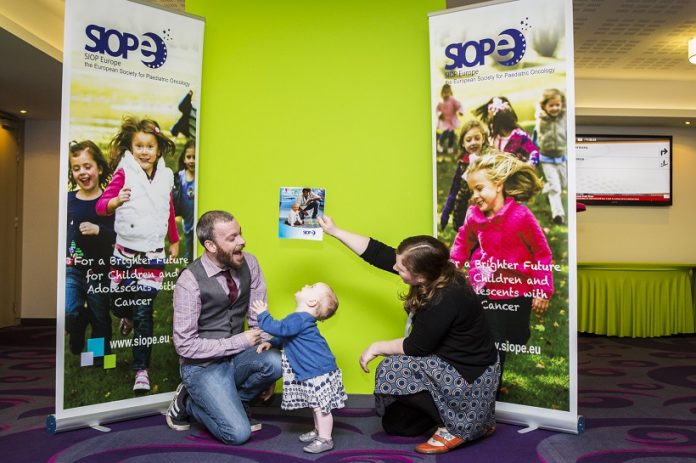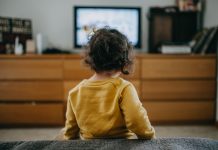SIOPE – the European Society for Paediatric Oncology highlights the importance of strengthening collaborations to ensure childhood cancer survivors lead a healthy life…
All childhood cancer survivors should be able to lead a normal life. In Europe however, in spite of the increase of the survival rates, many of them suffer from considerable treatment-related side-effects throughout their lives. Between 300,000 and 500,000 childhood cancer former patients currently live in Europe: two thirds of them suffer from late treatment complications which, in half of them, have a serious or even life-threatening nature. Late effects may impact not only health (e.g. heart failure, renal toxicity, secondary cancers, etc.), but also have a negative impact on growth, fertility, mental health and more generally on their professional and private life.
“Improving the quality of survivorship” became thus a priority for SIOPE (the European Society for Paediatric Oncology), who recently organised the PanCareSurFup European Conference ‘Acting Now’ (23-24 May 2016, Brussels, BE) to open this year’s European Week Against Cancer (25-31 May). More than a 100 participants attended this event – held in the framework of the EU funded project PanCareSurFup (PanCare Childhood and Adolescent Cancer Survivor Care and Follow-Up Studies) – and agreed that more collaborations between healthcare professionals and survivors, about the possible treatment’ side effects, a wider awareness of society and screenings for early detection of possible late effects, should become more widely available.
Several survivors shared their experiences during this conference, pointing out that the main problem they faced was not the cancer itself, but to have to deal years later with heavy repercussions on their lives. A young woman shared the frustration she felt when facing the lack of knowledge of medical professionals about her side effects, which strongly impacted her pregnancy. Other survivors stressed the importance of communicating to each other and explained that the word “survivor” carries a stigma, as a condition that cannot change, while the word “resilient” might be more appropriate.
As each complication is rare, and the follow up of survivors is unequally applied across Europe, there is a lack of consistent data and understanding on the late side effects of cancer and its treatment. The importance of advancing research via large pan-European collaborations to reduce the frequency, severity and impact of late side-effects is thus crucial. “Cure is not enough” was a recurrent sentence during the event, as research should shift its focus on developing new treatment protocols that minimise the risk of late complications without jeopardising good results. This could be done by taking into account childhood cancers’ biology and patients’ genetic predisposition to adjust the treatment and ensure the lower possible late effects and toxicities.
Where in Europe a patient is treated for childhood cancer may also affect the extent of negative late complications for survivors. The issue of health and survival inequalities across Europe was raised by Mr. Alojz Peterle MEP (SL, EPP and President of the MAC – MEPs Against Cancer Group), who opened the Conference. A cancer survivor himself, MEP Peterle last November (during the SIOPE-MAC launch of the European Cancer Plan for Children and Adolescents affirmed that better childhood cancer outcomes should remain a priority for the European Union. Apart from PanCareSurFup, the EU has already made possible a series of highly relevant projects – ENCCA, ExPOwwwr-Net and PanCareLIFE – but sustainability of advances and results obtained in these projects is crucial, and all stakeholders need to keep working together to make sure this happens.
“Quality of survivorship” is one of the 7 objectives of the SIOPE Strategic Plan, which strategically identifies ways to address the long-term consequences of cancer treatment. Together with partners in the PanCareSur- Fup project, SIOPE strives to find solutions to overcome such obstacles with concrete initiatives such as the “Survivorship Passport”. Defined via the partnership between professionals, survivors and IT experts, this innovative tool provides young patients who ended a cancer therapy with relevant information – including a treatment summary and individualised guidelines to follow on the long-term – making everyone aware of the potential risks or late effects. This initiative addresses the current lack of information on many patients’ medical history – particularly critical as children become adults, or as they move to another country – by both educating healthcare professionals and engaging survivors to play an active role in maintaining their own health and well-being.
In summary, SIOPE and its project partners highly appreciated the engagement of all participants – including survivors and their families, healthcare professionals, researchers, EU policymakers and others – to strengthen their collaborations and accelerate their efforts to ensure a full and meaningful life to all European survivors of childhood and adolescent cancer.
SIOPE – The European Society for Paediatric Oncology
office@siope.eu











